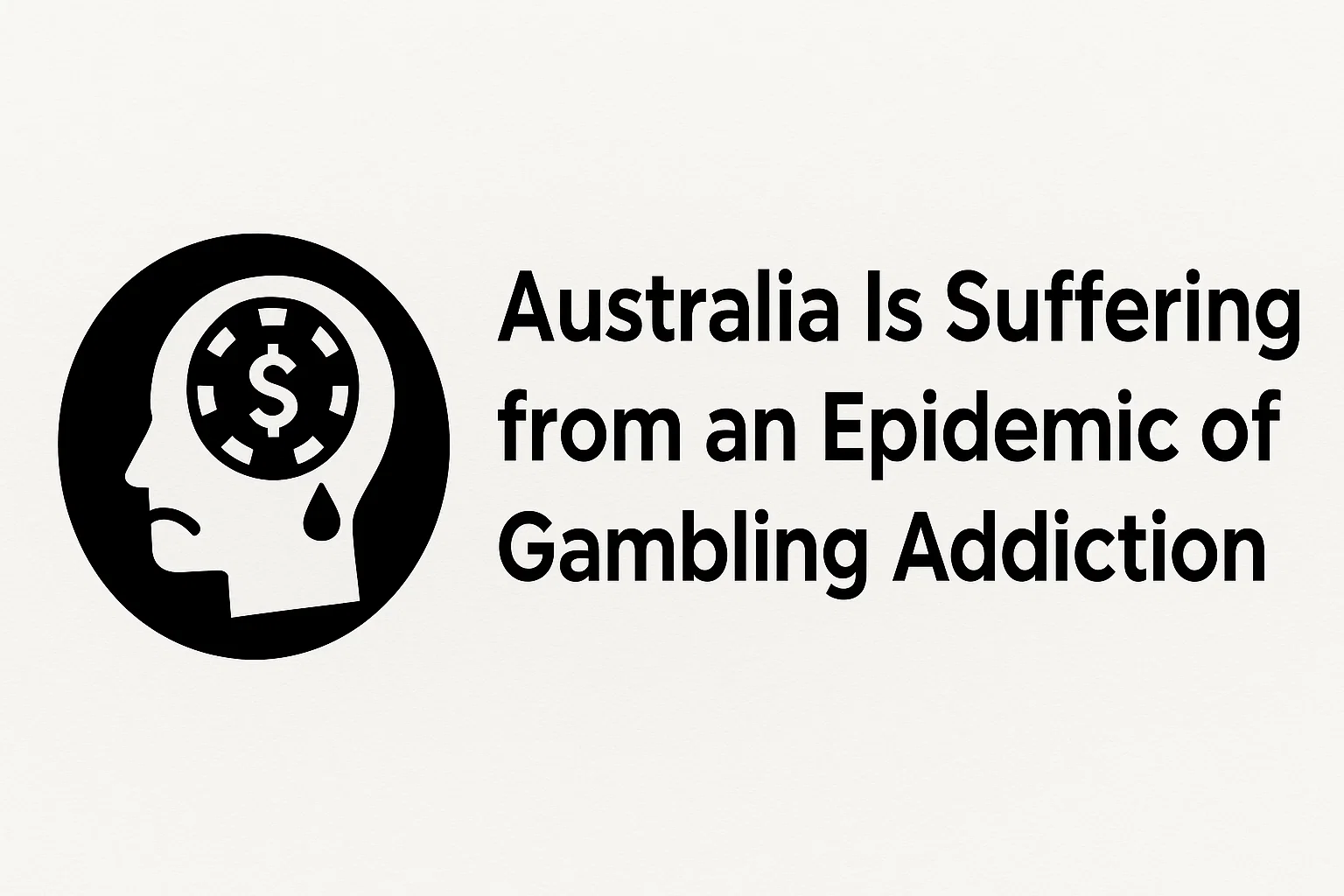Australia Is Suffering from an Epidemic of Gambling Addiction

There are 20% of the world's poker machines in Australia today. They are such a part of Australian local culture that they even have their own slang name—"pokies." They are as common as a local pub or a neighborhood café to many, especially where the access to real cash casinos Australia, such as Onlineauscasinos.com, is limited or highly regulated.
In Western Australia, all of the machines are in one casino. Elsewhere in the country, though, they are nearly everywhere. Overall, Australia has over 200,000 slot machines.
There are more slot machines per person in Australia than in almost any other nation.
Tim Costello: Australia's Foremost Anti-Gambling Campaigner
Costello estimates that gambling addiction contributes to more than 400 suicides in Australia annually—a figure the government also acknowledges. The primary offender, he says, is the poker machine.
Costello contends these machines are intentionally made to be addictive, causing dopamine releases—"hitting the brain like cocaine," he describes.
"Gamblers will often say that when they gamble, their problems just go away—they don't feel any anxiety at all," Costello says.
While for some people gambling is a harmless diversion over a beer, for others the blinking lights and whirling reels are so hypnotic that they make them feel like winners—even when they're not.
The outcome of a spin has nothing whatsoever to do with player skill. It's based solely on random chance, and the machine's mission is to allure and deceive.
"The Machines Own You"
On a sunny Saturday, a handful of individuals turn up for a Gamblers Anonymous meeting at the Exodus Foundation, a suburban Sydney charity.
Attendees wait for the weekly meeting, clutching plastic cups of tea and coffee. Some have lost not only large sums of money, but homes, jobs, and the trust of friends and family to gambling.
“I’m 19, and I’m new to gambling,” says one girl nervously. It’s her first time at a Gamblers Anonymous meeting, and though she came with a friend, she’s clearly on edge.
“I’ve tried not to gamble, but I’m a member of several clubs, and it’s hard to resist going,” she continues.
"Usually, when I've got money, I just want to spend the whole lot of it. Obviously, that's landed me in a financial mess: you lose more than you ever win."
The meeting is being led by Les, who's just turned 60. He's not backward in coming forward about his issues with booze, drugs, and poker machines.
"Even if you're a nobody in real life, the moment you step into a gaming room, you feel like somebody. They want your money. We're all so addicted to that illusion," he says. "You have no life. The machines own you."
One former addict even sued a manufacturer of machines in federal court, accusing the company of having knowingly taught machines how to deceive players.
The company denied all allegations, stating the machines are monitored by government regulators and meet strict standards.
In July, the Victoria government announced that some slot machines would be sealed for 25 years as a harm-reduction measure.
Responding to a record gambling loss in 2017, Marlene Kairouz from the Department of Gambling and Alcohol Regulation stated:
National statistics. show that there remains a lot to do across the nation."
Victoria is setting an example for other states on how to assist addicts and mitigate gambling harm, Kairouz added. The New South Wales government politely refused to comment to the BBC.
The World's Highest Gambling Losses
Australian addicts can self-exclude by registering on a list that blocks access to online casinos and gambling apps from next year.
Campaigners are hoping the development will help protect the country's most vulnerable citizens.
Currently, more than 200,000 Australians classify themselves as having "serious gambling problems," with a further 400,000 suffering from less severe addiction.
Destructive habits don't just harm the individual—they quickly ripple out to inflict injury on families and friends, says Monash University professor Charles Livingstone in Melbourne.
"Pokies directly impact the lives of millions of Australians. It's a serious issue, and it's getting worse," he warns.
Key players and figures:
- The average Australian problem gambler loses about $1,000 annually.
- For comparison, the next worst-affected country, Singapore, has gamblers losing a collective $400 a head annually.
"We've beaten all other countries because we give many more opportunities to gamble," Livingstone says.
"Regulation of gambling was deregulated overnight in the early '90s. The industry boomed—and nothing's happened since then," he says.
